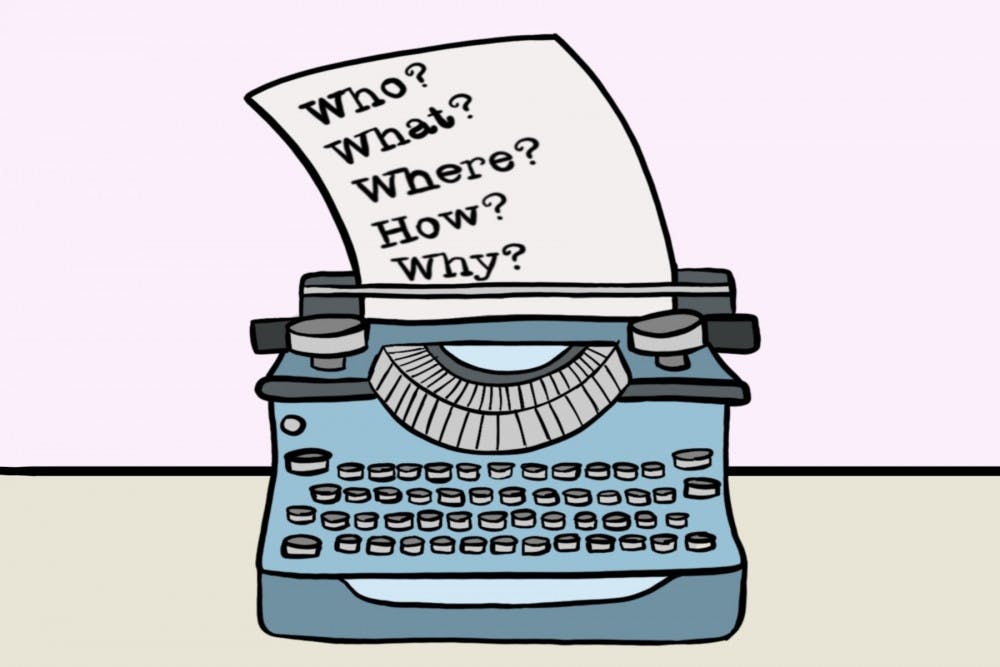If there is one thing that Americans love the most, it is democracy.
What most Americans do not know is that democracy would not be able to exist without journalism.
Journalism is the unofficial fourth branch of government that fact checks, supervises the other three branches and keeps the public informed.
Without reporters being the watchdogs of the U.S., the government, big business and the wealthy would have free reign over the country.
The Walter Cronkite School of Journalism and Mass Communication at ASU strives to produce ethical journalists who will follow a very specific set of morals.
Good journalists are important to this watchdog role. However, the public's view of the media has historically been skeptical.
The public should value and appreciate journalists when they are fair, objective, transparent and unbiased. Without good reporters and columnists, society would be looking at a very different type of government today.
The Cronkite school intends to educate young journalists who will produce such high-reaching journalists into the workforce.
“We’re trying very hard to teach journalism, the practices of journalism and the ethics of journalism," Kristin Gilger, the senior associate dean of the Cronkite school, said. "We’re really pushing audience engagement.”
The students at the Cronkite school, which was ranked as one of the top-10 journalism school in the country, learn everyday that the most important things in journalism are truthfulness and transparency.
The goal of a journalist is not to get the most clicks on an article, but to help and impact the most people.
Every journalism major must take the course "Principles and History of Journalism," which focuses on what makes news, how journalists should act and how they can serve the public. Students are also educated on previous watchdog journalists who made an impact in government-related affairs.
They are the bridge that join together the public and the government. Without good journalism, the public would be none the wiser of what happens in government.
"I think that the watchdog role – the check on government – is probably the most important thing in terms of democracy," Gilger said. "If we didn't have a free and independent press in this country, we wouldn't have a democracy."
One notable event in history where journalists accomplished this was with the Watergate scandal, which resulted in Former President Richard Nixon's resignation.
The sole purpose of journalism is to inform the public. It is not uncommon for journalists to put themselves in dangerous situations to inform people. Journalists have even been murdered for their work, and in 2016 alone, 48 journalists were killed while pursuing stories that they felt the public needed to know, often pertaining to government and politics.
Rebecca Blatt, the assistant dean at the Cronkite school, said that journalists have the responsibility of holding government officials accountable for their actions.
"Tax payers who aren't journalists don't necessarily have the time to go to city hall and figure out where that money is going or do investigative reporting," Blatt said. "A fundamental responsibility of journalists is to hold people accountable for what they are supposed to be doing, and that is something that, otherwise, rarely happens."
However, as journalists, there are things we can do to be more trustworthy. Journalists should do their best to be more transparent, which would include being clear on where and how they received their information. This way, even when reporting on politics, there is no shadow of doubt.
"We need to practice journalism the way we've been taught to practice it and be as transparent as possible," Gilger said.
The Cronkite school is certainly doing its due diligence in drilling a code of ethics into the students' heads. In turn, this will produce a new wave of journalists who will hopefully promote the democracy our country aims to uphold.
Reach the columnist at jlferrig@asu.edu or follow @Jess_Ferrigno on Twitter.
Editor’s note: The opinions presented in this column are the author’s and do not imply any endorsement from The State Press or its editors.
Want to join the conversation? Send an email to opiniondesk.statepress@gmail.com. Keep letters under 500 words and be sure to include your university affiliation. Anonymity will not be granted.
Like The State Press on Facebook and follow @statepress on Twitter.




